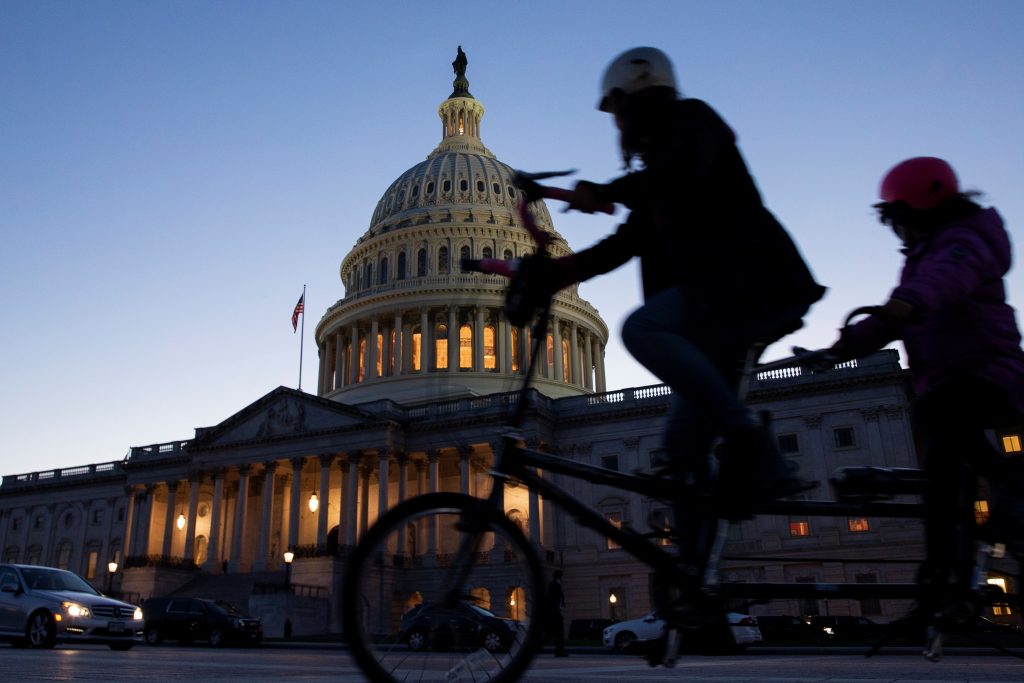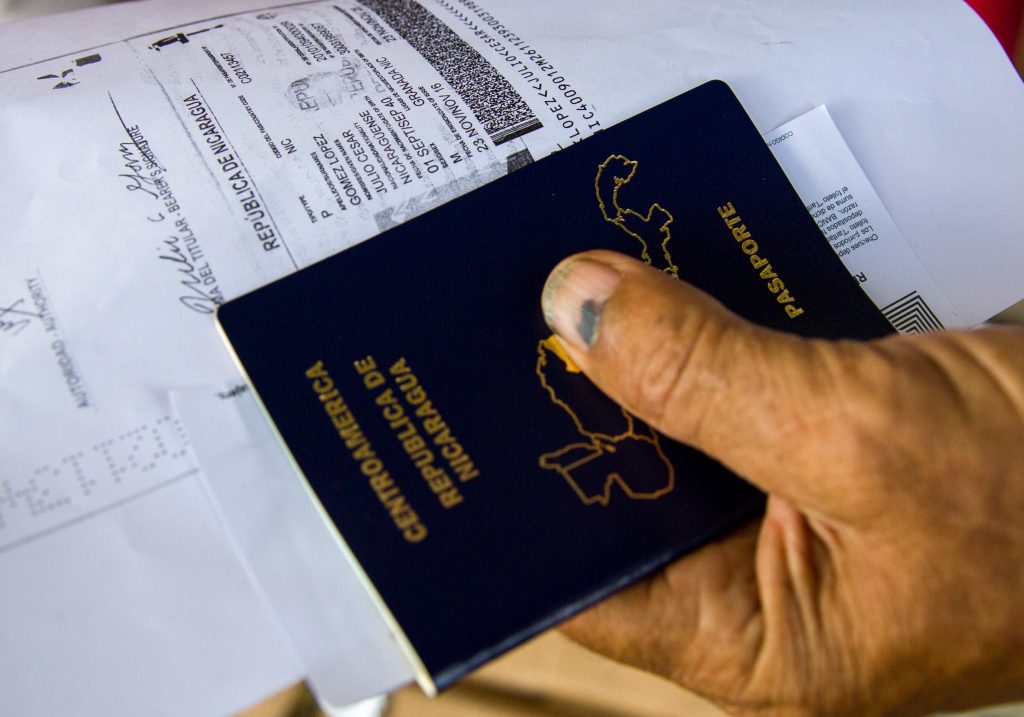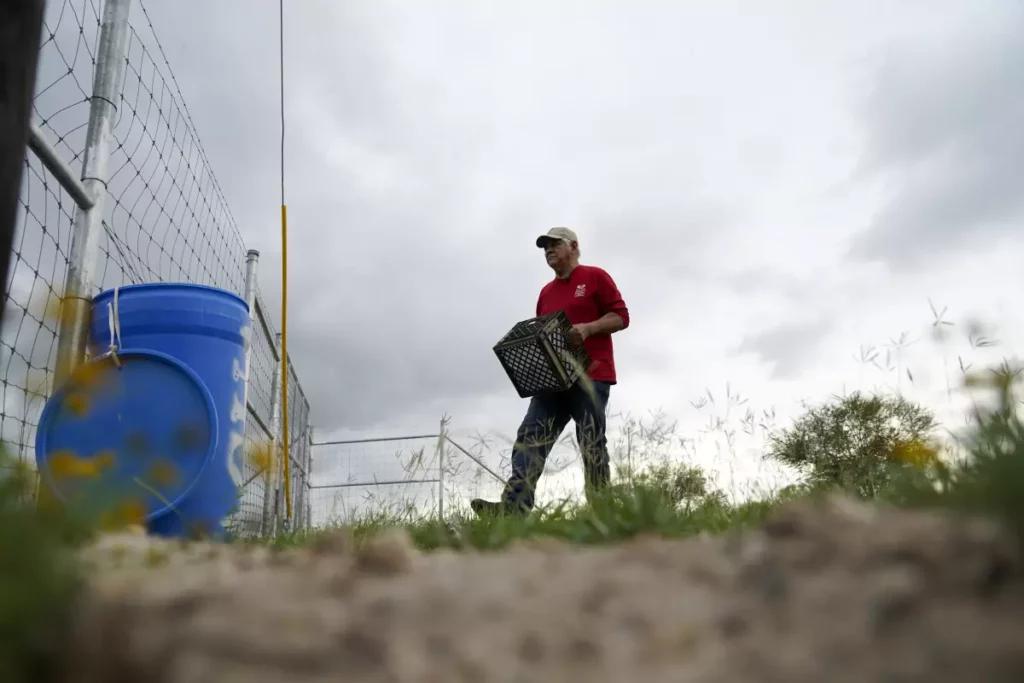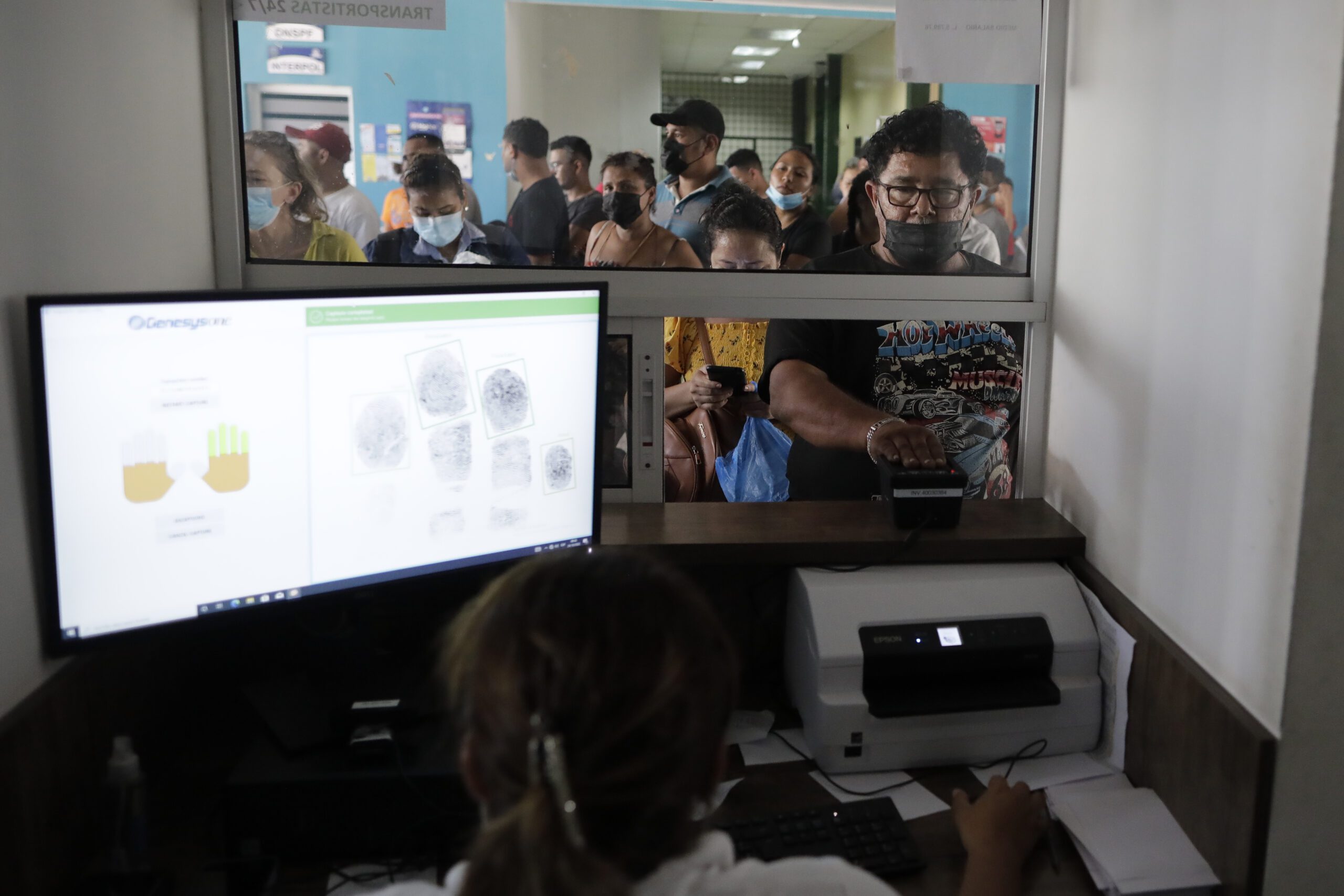The last few months have not been good for David, a 37-year-old Nicaraguan migrant who has been living in the United States for three years. After months of being unable to work, he hopes to return to Nicaragua in April of this year. However, he just got bad news: the Ortega-Murillo regime closed the consulate in Los Angeles, where he has been living for the past two years.
David‘s passport has expired, so now, the process to return to his country has to be done at the consulate in Miami, almost 4,000 kilometers away. This means spending money on a plane ticket and a place to stay (he has no relatives in that city) to complete the paperwork. “But I don’t have any money, my economic situation is terrible, that’s why I want to go back to Nicaragua”, David tells us.
David‘s situation is one of several that Nicaraguans living in Los Angeles and five other places (three in the United States and three in Guatemala, Mexico and England) face, where the Nicaraguan consulate has been closed in recent weeks, according to media reports in Nicaragua.
The Ortega and Murillo regime has not explained why the consulates have been closed, a decision that contradicts the opening of Nicaraguan diplomatic offices in countries such as North Korea, and African countries such as Zimbabwe, Angola and Burkina Faso, where the Nicaraguan presence is minimal compared to the United States, Mexico and Guatemala.
For example, as of 2020, there were 406,613 Nicaraguans living in the United States, according to statistics from the U.S. Census Bureau. However, in the last two years the arrival of more than 350,000 Nicaraguans who migrated irregularly to the United States was documented, according to official statistics.
This migration led to a massive demand for passports at U.S. consulates. In 2022 alone, 70,000 passports were issued in the US, according to statistics of the Ortega-Murillo regime.

A sign on a consulate door is the only information provided
Although official statistics show a considerable movement in these offices, the dictatorship cut operations in these consulates without any explanation. The only thing they have done is hang short notices on the main doors of the buildings where they operated: “The consulate is permanently closed. Please read the note on the door. Sorry for the inconvenience”.
Consulates have, in addition to other functions, to issue passports, travel documents, visas to foreigners; protect minors in their jurisdiction; repatriate bodies, look after the interests of Nicaraguans in court and strengthen ties between fellow citizens in that place of residence.
David says he felt helpless when he learned of the closing of the consulates. Of the six places he could go to up until a few months ago, now only half are left. And they are all on the East Coast of the United States: Miami, Washington D.C. and New York.
In order to travel to these places, David has to spend between $250 and $500 (round trip) on a plane ticket, a place to stay and transportation in the cities where he is going to go. All this represents approximately 2,000 dollars. “An impossible amount for me right now,” he says.
David used to work in an Amazon warehouse in Los Angeles. But one afternoon in August last year, he injured his wrist, and asked to be off work for two weeks. When he wanted to return, he was met with a pink slip. He sued the company for wrongful termination, but in that process he has waited more than six months for them to rule in his favor.
“I can’t have a job because it would show that I have no injury and I may lose the lawsuit,” says David. In order to survive, David has been living in the homes of friends and relatives, and has gone into debt with loans that he hopes to pay off when they rule in his favor.
Sandinistas shut down U.S. consulates in the 1980s
Anita Wells, president of Abuenica – an organization that assists the politically persecuted in the United States – believes that the closure of consular services is leaving people on the West Coast of the United States unprotected. “This leaves a large number of Nicaraguans depatriated.”
Wells is the daughter of a U.S. Marine and a Nicaraguan. She migrated to the United States in the 1980s, after the Sandinistas took power. That is why she assures that this measure “is not new”.
“In the 80’s it was difficult to access consular services in the different states of the United States, because they wanted to control those who belonged to the Contra (the guerrilla of the counterrevolution) or if they were related to the Contra”, explains Wells.
The current context is different, as there is no guerrilla threatening the power of the Ortega-Murillo family. On the other hand, the new wave of Nicaraguans in the United States has meant an unprecedented increase in remittances in the Nicaraguan economy.

Regime closes consulates, but celebrates migrant remittances
Last year remittances from the United States amounted to US$336.6 million, according to statistics from the Central Bank of Nicaragua (BCN). The latest report of the International Monetary Fund (IMF) stated that remittances underpinned Nicaragua’s economy to a 3% growth.
The IMF explained that remittances accounted for 28% of Nicaragua’s Gross Domestic Product (GDP) in 2023, along with exports. The director of the Migration, Remittances and Development program of the Inter-American Dialogue, Manuel Orozco, said that Nicaragua’s economy is sustained by the massive expulsion of Nicaraguans due to repression and the political crisis. “Nicaragua’s main export product is people,” Orozco concluded.
“The Houston consulate was not helping to repatriate corpses”
Eduardo Canales is a Mexican who spends much of his time searching for corpses. He is the director of the South Texas Human Rights Center, and he often receives calls from people from different countries who want help finding a missing family member. Canales then visits morgues or cemeteries of unmarked graves, and makes arrangements for the identification and repatriation of the bodies.
The area where Canales works, a 110-kilometer section of the U.S.-Mexico border, is highly dangerous. Many migrants often cross through bushes to evade US Border Patrol checkpoints, and that is where they die. In the last two years, at least 140 Nicaraguans have died on the irregular route to reach the United States.
Canales told DIVERGENTES that the closure of the consulate in Houston makes no difference “because they were not assisting in any way” family members who wanted to repatriate the bodies of their loved ones to Nicaragua.
Of the cases of Nicaraguans who sought help to repatriate bodies at this human rights center, Canales assures that none succeeded. “The bodies have been buried here in the United States, because the Nicaraguan government does not have a process for these cases,” he says.
The morgues in Houston often collapse due to the large number of deceased migrants. The bodies, sometimes unidentified, are directly buried in bags with their belongings. Those found without identity documents are simply given a common code on their grave, for example, “John M”.
In order for repatriation to take place, the bodies must have names, says Canales. “A body that is not identified cannot leave the United States,” he points out.

“They didn’t even answer the phone,” at the Houston consulate
The identity of the bodies has to be scientifically verified. Sometimes, identity documents such as identity cards or passports are not enough, because the state of decomposition in which the bodies are sometimes found makes them impossible to recognize.
This is what makes it difficult to repatriate the bodies to Nicaragua: the authorities do not cooperate in the identification process. In order to exhume the body, for example, they should provide a DNA test or fingerprints from the relatives. But if there is no collaboration from the consular office, the procedure is impossible to carry out.
“All the consulates handle this process and help, except the one in Nicaragua, and also the one in Honduras is slow in this process,” adds the activist.
When Canales called the Nicaraguan consulate in Houston to help family members who wanted to repatriate corpses, “they didn’t even answer the phone,” he says.





